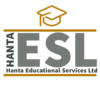Course Description
Different approaches to teaching, such as metacognition and self-regulation, support pupils to think more explicitly about their learning by teaching them strategies, such as planning, monitoring, and evaluating their learning.
There are three essential components to self-regulated learning:
cognition, metacognition, and motivation.
- Cognition is the mental process involved in knowing, understanding, and learning
- Metacognition is often defined as "learning to learn"
- Finally, motivation is the willingness to engage our metacognitive and cognitive skills
Metacognition and self-regulation approaches have the potential to make a huge impact. By encouraging students to take more responsibility for their learning and development and understanding of what it takes to be successful, it can greatly increase their capacity to learn and grow.
The data suggests that directly teaching methods to assist in devising, keeping track of and assessing particular facets of their education can be beneficial. These procedures are more successful when they are used for demanding assignments based on the typical curriculum material.
Teachers can show skilled use of metacognitive and self-regulatory strategies by demonstrating their own thinking processes. Teachers might explain their thinking when interpreting a text or solving a mathematical task, while promoting and developing metacognitive talk related to lesson objectives.
There is data which points to the fact that students from disadvantaged backgrounds are less likely to use metacognitive and self-regulatory strategies unless they are taught these skills in the classroom. Therefore, teaching these strategies explicitly could motivate students to use these skills more often in the future. Through direct teaching and feedback, students are more likely to use these strategies on their own and routinely, giving them the ability to manage their own learning and overcome challenges more independently.
Course Content
- What is metacognition & self-regulated learning
- How to encourage self-regulated learning
- How to improve metacognition
- Incooporating metacognition & self-regulated in the school curriculum
- New activities for metacognition & self-regulated learning
- The advantages of metacognition & self-regulated learning
- Long-term teaching strategies for improved metacognition & self-regulation
Learning Outcomes
At the end of the course delegates will be able to:
- Develop an understanding of the concept of metacognition and its importance in self-regulated learning
- Learn about different metacognition strategies that can be used to support self-regulated learning
- Try out different metacognition strategies and reflect on their effectiveness
- Develop a personal action plan for incorporating metacognition into self-regulated learning
Assessment and Certificates
Assessment of performance will be through delegate-completed portfolio of work. The final course certification for successful completion is a college-issued “Course Certificate of Completion”, for each module studied. In addition, where applicable, delegates will receive relevant EuroPass certificates.
![]()

